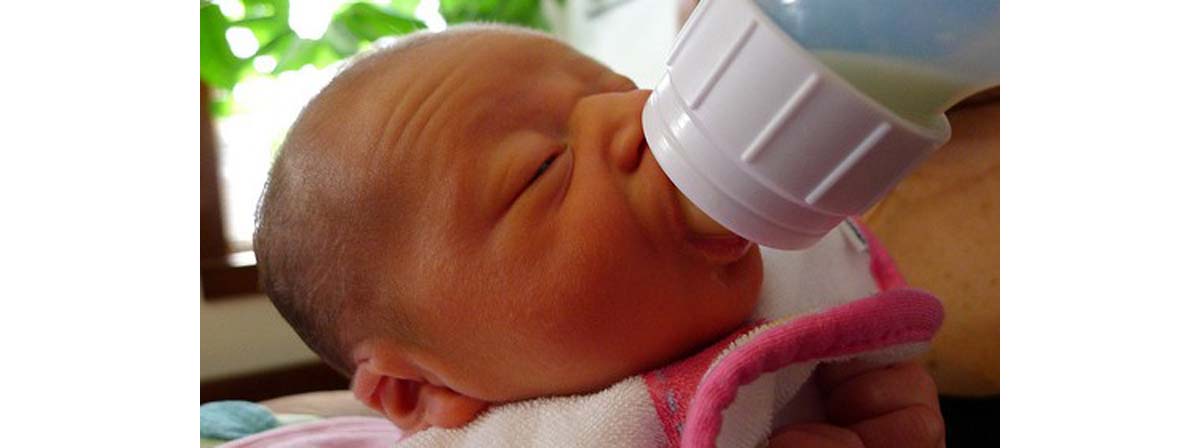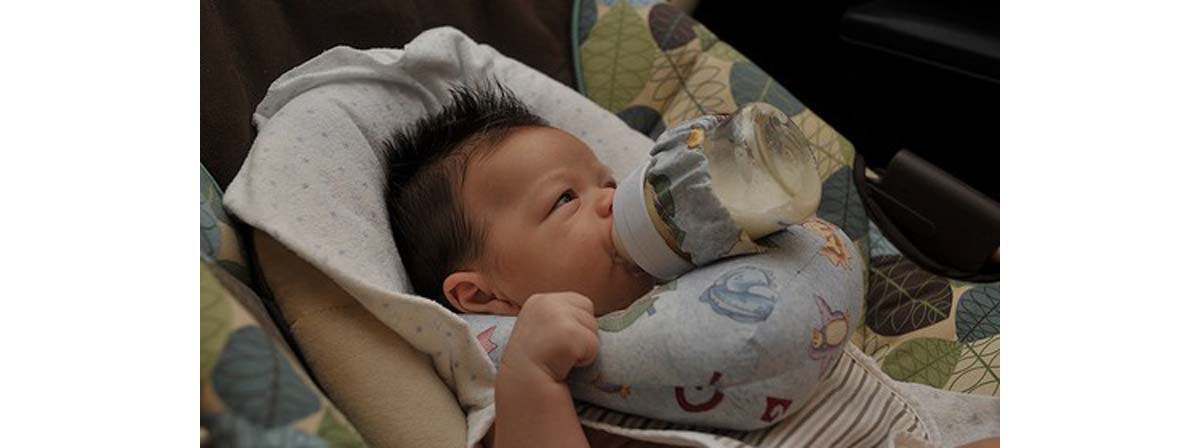Do you have a baby, have you ever had a baby, or have you ever heard of babies? Then you've probably been confronted with the erroneous concept that “breast is best” when it comes to infant nutrition.

"Breast is not best," the lactivist will be quick to correct you. "Breast is normal."Formula is inferior.
This phenomenon rose out of a post-war world that promoted formula as a scientific victory and a less burdensome way to feed an infant. Even if the mother had no trouble breastfeeding. Yes, formula saves lives, but only in case of genuine need.
Like its counterpart Big Pharma, Big Formula is out to steal money from unsuspecting mothers and health from babies who have no idea what they are sucking on. At the very least, new parents are likely to be given free formula samples at the hospital, to lure them in. At worst, hospital staff will sabotage your breastfeeding relationship by taking your baby to the nursery and stealth-feeding it formula, while you're catching some sleep.
Never mind that the tide has turned in recent decades. Formula samples are banned in many hospitals, and staff lactation consultants might check that you there is a genuine need to feed formula before giving you any. Studies that show the benefits of breastfeeding — or I should say “the disadvantages of formula feeding” in lactivist speak — circulate all the time.
Parents on the other side of the so-called mommy wars might have a hard time understanding what the big deal is here, but those who have committed themselves to "natural parenting" will know exactly what I am talking about.
No, I'm not against those things. I did them all. I have two kids, and they were nursed for a combined four years. I had no breastfeeding problems and nursed everywhere — in my home, at the park, at the supermarket, and even in a European national parliament. Oh, never in a restroom, of course. That's denigrating.
Some mothers do have breastfeeding problems, though. The pressure they feel can be immense if they've immersed themselves in the world of natural parenting. Isn't formula there especially for you, if you don't have milk for your baby? No, the lactivist will remind you: formula isn't even the second-best option.
The World Health Organization lists a clear infant-food quality hierarchy:
- Breast milk straight from your own breasts
- Your own pumped breast milk given from a bottle
- Donor breast milk
- Formula
Mothers who can't breastfeed or pump are fighting to at least offer their babies that "third-best option".
Peer-to-peer breast milk networks may seem like the ideal solution. There, mothers are eager to give their excess breast milk away for free, or if they want compensation they charge much less at about $1.50 an ounce. A new study reveals breast milk exchange networks aren't as good as they seem to be, and that the donor milk you are so happy to give to your baby might well be ridden with bacteria.
Study: Most Donor Breast Milk Is Contaminated
A study published in the journal Pediatrics shows that unregulated donor milk might not be as safe as moms hope it is. The study was led by Sarah Keim, an assistant professor of pediatrics at Ohio State and a researcher at Nationwide Children’s Hospital in Columbus, Ohio.

Are you tempted to accept breast milk from a mom committed to breastfeeding, just like you? My friend was. She simply didn't produce breast milk and turned to Craigslist to make sure her baby could at least benefit from that infamous third-best option. She met the woman who donated at a Walmart parking lot, and said:
But the woman who wanted to donate her breast milk looked normal. A toddler was sitting in a car seat in her car, and my friend decided to take the milk. The woman assured her it had been properly stored in her freezer, and my friend was happy to give the "liquid gold" to her baby.
Keim and her team collected 101 samples of breast milk, Procured in the same way. They compared these milk samples to unpasteurized milk from breast milk banks, and found that most of the milk-share milk, a total of 74 percent, was contaminated with Gram-negative bacteria or had colony-forming units.
Sixty-four percent had staph. Thirty-six percent had strep, and three quarters had other bacteria. Three samples even contained salmonella. While the unpasteurized milk bank samples weren't free of bacteria either, they were a lot cleaner and were still waiting to go through the pasteurization process.
Do you think you are doing your child a favor by obtaining human milk from a stranger through a milk-share website? Sarah Keim doesn't: "We looked at everything a buyer could know herself — temperature, the condition of the containers, how long it took to ship, what sellers were saying in their ads — and only the time in transit had any effect on contamination."
In other words, even milk from nice ladies like the one my friend accepted milk from could be ridden with bacteria.
Do you think formula is the worst thing you could give to your baby? Think again. Buy donor milk from a reputable breast milk bank if it's available and you can afford it. Otherwise, give formula — guilt-free, knowing that it it might make your baby's poop more smelly, and it could even give her eczema, but at least she won't be infected with staph, strep, or salmonella.
- Photo courtesy of Derek Preston by Flickr : www.flickr.com/photos/keatssycamore/7022635257/
- Photo courtesy of Nelson Kwok by Flickr : www.flickr.com/photos/nellyy/3959793205/


Your thoughts on this